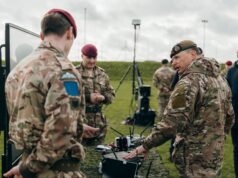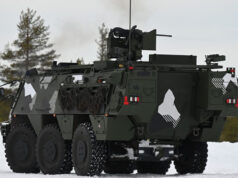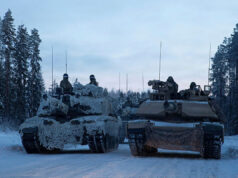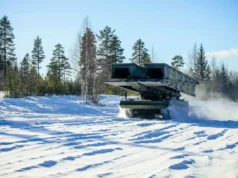Newly released figures reveal that voluntary outflow remains the leading cause of personnel leaving the UK Armed Forces, with 8,105 trained personnel opting to leave service in the 12 months leading up to March 2024.
The data, provided in response to written questions by Labour MP Shaun Davies, shows a consistent upward trend in voluntary outflow over the last five years. According to Al Carns, Minister for Veterans, this category remains the largest driver of departures, highlighting challenges for retention across the Armed Forces:
| 12 Months Ending | 2020 | 2021 | 2022 | 2023 | 2024 |
|---|---|---|---|---|---|
| Voluntary Outflow | 7,375 | 5,268 | 5,978 | 8,405 | 8,101 |
| Total Outflow | 11,795 | 8,649 | 10,610 | 13,465 | 13,275 |
Driving Factors Behind Voluntary Outflow
The Armed Forces Continuous Attitude Survey (AFCAS) 2024 identifies the top three factors contributing to the rise in voluntary departures:
- The impact of service life on family and personal life, including frequent relocations and prolonged time away from home.
- Opportunities outside the military, particularly in the civilian job market, which often offer higher salaries and better work-life balance.
- Pay concerns, with many personnel expressing dissatisfaction amid rising living costs.
Minister Carns commented: “The MOD continuously evaluates retention strategies to address these concerns and provide personnel with improved support to remain in service.”
While overall outflow numbers remain within historical norms, the MOD recently acknowledged a concerning imbalance: approximately 300 more personnel are leaving each month than joining.
The sustained increase in voluntary outflow—from 5,268 in 2021 to over 8,000 in both 2023 and 2024—reflects significant challenges for retention. This trend, coupled with other departures such as time expiry and medical discharges, places further pressure on recruitment efforts and operational readiness.
Retention efforts remain a priority for the Ministry of Defence, with initiatives aimed at improving pay structures, family support, and career progression opportunities to reduce the appeal of leaving for civilian roles.
The full datasets and survey findings can be accessed through the Quarterly Service Personnel Statistics and AFCAS 2024 reports available on gov.uk.













Does the report provide a bit more detail such as:
Trade group, Time Served / Rank, Marital Status to name but a few.
We saw previously that MOD were paying retention bonuses for certain pinch point trades., but details of time served would be a big indicator.
It may also be as a result of Pension changes. IIRC those on the “post AFP75” don’t immediately get a pension after 17/22 years. ( Happy to be corrected if I have that wrong). If correct, then it may be a big influence on those who have perhaps already served 15+ years. Under AFP75, most hung on till the 22 year point, even if not happy, as the financial loss would mostly outweigh any benefits of leaving.
It might be interesting to also not how getting married affects “outflow”. Given the current star of forces housing and peoples aspirations in regards to en-suites, spouse’s working etc, that moving into a rundown, damp house with NO decent job prospects for the “other half”, play a big part.
Is someone breeding idiots now? If you want to serve in the Forces,…these are the bits you need to know BEFORE signing …
1. It is not a job for life.
2. The pay is not compatible with like for like jobs/ carrears in civilian life.
3 . EXPECT to spend long periods away from family. Do not expect a social / worklife balance, there are no NORMAL JOBS in the armed forces.
4. Your Accomodation, either as a single ,or as a family, will not be perfect…( unless you own your own home)
5. Expect to be sent away at very short notice, for undetermined lengths of time.
6.You are signing a blank cheque, for your life,for the duration of your contract.
If you still want to join up, after reading this ,
No-one’s expecting perfect, just an improvement on rotting window frames, 1950s kitchen and shilling in the meter electric. In 1995, as a warrant officer. On leaving my friend’s mouldy quarter in Tidworth, my dad said ‘what a disgrace’.
As an ex professional soldier you are so right.
I agree with you 100%. After serving in RAF for 25yrs (1976-2001) when 93,000 personnel were in the RAF, today after decades of cuts and Defence Strategic Reviews staffing levels are down to 27,000, it’s no wonder personnel are demoralised and wanting to leave being away from family and loved ones more often and longer.
It is happening across the Western world. Some countries doing better than others, but the hard reality is that young people in the West have no interest in military service – for a variety of reasons.
… like the last days of the Roman empire, hiring mercenaries may be a main alternative. … perhaps the British army should consider replacing most (all?) of its light infantry with Gurkhas. May be part of the answer.
OK the Gurkhas are a bit more than that?
I think you’re wrong Roy. I see plenty of young people join but very few stay the distance. A combination of poor working patterns, a declining state of equipment and poor progression prospects.
I am an ex Cavalry officer from India living in Salisbury. There are many reasons why youngsters don’t want to join the forces and one does not blame them.
Unlike India, the defence forces here don’t have that aura and respect
The conditions have gone downhill in the last 3 decades. The Brits formed India’s defence forces and that rlement of togetherness still stays. We have defence Institutes, more like Clubs all over the country. The reason they are mainly for officers because the soldiers in India are conservative, unlike those in the UK. In London the Victory Club is open to all while in India they are for officers. Why could we not have had one in Salisbury for instance?
The Indian army has forces canteens all over the country where they don’t pay tax, from liquor to essentials. You get a canteen card even if retired
Pay scales are not attractive , nor is the accommodation. On defence land welfare housing for the forces have sprung up and cost far less than the market rates
If the government wants people to join, make it attractive. A retired officer or soldier in India is much in demand, because they are allowed paid leave to do civilisn courses like HRD etc
Instead of focusing on retention, maybe another question should be, how long does it take to join the armed forces? Does it take longer to join up as the application is done by a private company? I’m sure the initial application was quicker when the forces did it themselves.
Joe, The Continuous Attitude Survey completed by a good number of serving personnel naturally is an indicator of factors affecting retention or otherwise.
Recruiting is another matter and there is data elsewhere about how long it takes to join up with Capita at the helm. Some ‘old hands’ talk of having gone through the application process and then starting basic training in a matter of a few short months. It is well known that the process with Capita can easily take well over a year.
As an ‘ Old Hand’ I can confirm that I had gone through the Army Career Office and done the initial paperwork, tests & Medical in a few weeks.
I signed on the dotted line 15 Noverber 1977.
I was at my Depot for Basic Training to begin on 1 December 1978!
That was with 3 days at the Army Selection Centre at Sutton Coldfield thrown in between those dates.
As an ‘ Old Hand’ I can confirm that I had gone through the Army Career Office and done the initial paperwork, tests & Medical in a few weeks.
I signed on the dotted line 15 Noverber 1977.
I was at my Depot for Basic Training to begin on 1 December 1977!
That was with 3 days at the Army Selection Centre at Sutton Coldfield thrown in between those dates.
You can never recruit yourself out of a retention hole. It takes 12 years to make a Sergeant, 7 to make a Corporal. You if you can’t make NCO’s remain in the service, no amount of churning privates through Phase 1 and 2 will make up for the shortfall.
You 100% correct it was faster when it was done by the Army now it’s a joke.
Conscription gives countries the ability to force fit young people to serve for short periods. A proportion may be given the opportunity to stay in the forces and build a longer term career. This approach doesn’t work for roles requiring years long training- eg fast jet pilots, engineering specialists. The problem that an all professional force causes is the difficulty of matching conscription’s ability to deliver sufficient numbers for the shorter term roles. ( We have more than enough admirals, generals, air marshals etc)
Obviously, for both types of role, the remuneration package as a whole has to be competitive. Equally important, recruitment needs to be far quicker.
At present I believe the minimum service period is 4 years, depending on length of training. Is that too inflexible? Would a shorter commitment, as available in the US, be attractive to potential recruits?
Peter, despite Sunak’s belated interest in conscriptiojn in the dying months of his regime, we have only ever commenced conscription in a World War when we needed to expand the army to several million.
Minimum service period for the army, I think is still 4 years for ORs. It used to be 3 years. 4 years (including Ph 1 and 2 training) is not a long time. Much less and there would be poor return on investment.
Infantry Soldier training is 32 weeks. Combat Medic is 43. Both are considered to be unfinished products when they arrive at unit are are expected to undergo additional training to be fully competent at their professions. The same applies to virtually any other military job. Conscription means by the time you have a trained soldier they are already looking at leaving. It’s not an attractive model, and it requires the entire permanent force to be structured around a constant through flow.
I’m leaving because the Forces have lost their way. I wanted to join and stay in an organisation that valued me and the team. Too many Officers jumping on the woke bandwagon and alienating the core pool of people we traditionally recruited from. The Armed Forces no longer represents what working class males want.
Horace, The officers are forced to jump on the woke bandwagon. It is Policy….imposed by the politicians.
Hit the nail on the head
Agree completely with Horace. It’s woke and there is no professionalism anymore. There is no accountability and people get frustrated when performance is sooo bad. Civi street is a better option.
Those are exactly the reasons Tom.
Well if not being a c*nt is too difficult for you, best of luck on civie street, you’ll need it.
Are you in military recruitment Dern? If so that would explain some of the problems.
It was apparent when I served 56/78 that service personnel were unhappy not only with pay, state of married a occomodation and long overseas tours away from family. When I left I was approached by an officer to sign on. I would have if he could guarantee I’d be remaining at my last unit for a period of four to five years as I’d just bought my house and the children would have completed their education and found employment and remained in our house. After that I would leave as I’d have reached an age when I’d been able to get employment as a civilian. He just brushes it aside so that was the end of interview. It seems as though service personnel today feel they are not appreciated and the woke attitude by senior officers are not a place in today’s armed forces.
John, the reason the officer brushed aside your ‘demand’ was that he could not agree to it. You knew that folk get posted every 2-3 years, unless they were in certain roles in BAOR (Germany), ie tankies or heavy artillery bods etc
Promotion is generally poor, accommodation is awful in a lot of places and you aren’t really valued.
They treat you as disposable. Promotion not always done on merits but on their ability to replace your role. If you got injured they know how to not pay you compensation. No sense of community. And that why people leaving in droves.
Blokes are getting snapped too early in there careers if it was BOAR and everyone was on the piss you’d be like fair one kick the dossers our but we are dealing with post Afghanistan and Iraq with lots of people with experience and problems and new generation issues and the pay hasn’t kept up you can read through my previous comments like I’ve said the stupid bastards through us at every strike going at one point and the savvy managers turned around to us and recruited us for more money and the only person to blame for that is his majesty’s government
I’m been in a lowly 13 years and it has changed a lot already.
I’ve moved over to 22 scheme and the only shining light for me is the pay at OF4.
Since beginning of this year I’ve had maybe 40 days off including weekends due to working routine at the moment and while it is part of the job, it is still a challenge with a family you never get to see.
In board aren’t interested as this is definitely not the norm.
I served 1987-2011 in R.Signals and people always complained about those (plus I still work in support of the military as a defence contractor) ings BUT I would say those reasons are invalid really but just not realised by those who join as youngsters (until they leave). in response to the top 3 listed here’s my opinion…
1. Service Commitments – Minimal! Germany basically closed down and many other overseas listings gone (Falklands & Cyprus still there, Hong Kong, Belize gone wayyy back). Afghanistan & Iraq have ended(ish). Army units are mainly being concentrated in hubs in the UK and now I believe you can opt to stay in a unit rather than posted every 3yrs or so. Exercise commitments appear the same or less.
2. Opportunities – Yes of course they are more limited BUT you can get things civvies can’t such as payment (and time off) for college courses and OU etc plus free expeditions and sports or adventure training courses. You often get PT scheduled IN working hours plus Wednesday sports afternoons and Friday lunchtime knock offs. There are often opportunities to change your general employment life by opting for EW/Cyber warfare units if Signals, Para & Commando units, SF support units, Special Comms if signals, Army Spec Ops Brigade etc.Plys enjoy way more holiday than civilians.
3. Pay – Generally equivalent to or better than civilian pay BUT you pay almost nothing on rent/mortgage, peanuts for food, negligible council tax, no bills, and everything (apart from food) is deducted before you get paid! Additionally, free prescriptions & treatment, free dental, free gym and you pool, free eye tests, free sports & adventure training courses, plus leave warrant payments. I was paid more when I left BUT was £1000 a month worse off!
You don’t have those opportunities if you on fast jets front line squadrons.
And those are the real reasons are they? or are they the vetted ones and any others are just not brought up. Time away etc? where there are no on going shooting war OP’s nothing.
Boredom, lack of kit/spares ie the stand about a lot where once AS90 Regts?, poor pay, crap damp run down homes, Over worked doing more than one job due to lack of personnel?. Lack of real tours. lowering of Standards, Some WOKE/PC policies, these are all reasons but no one with rank accepts them and just brushes them off.
I’m currently serving and enjoy it for the most part, my wage just managed to support my family of 5 when I was gnr due to rent being subsidised and topped up by gov benefits, my only true gripes are manning and equipment, oh and the new retention bonus seems a kick in the teeth as a jnco with alot of experience makes me want to do fu** all anymore and just sit back and watch the shit unfold. But as I’m professional I won’t ill do my job with a smile while watching some crow bag blow his or hers 8000 retention on the piss while I struggle to pay my bills.
As a retired police officer I can quite see why retention is a great problem.My advice to all servicemen is simply to put ashore on a south coast beach and claim asylum.You will looked after like a king, like those in H M Prisons you will recisve dental and medical care without having to wait 2 weeks for an appointment.Free legal consultations, housing problems a thing of the past.Difference is they will not wear a military uniform and have to put their life on the line if Putin turns nasty.
And if they keep throwing veterans to the wolves and allowing murdering terrorists to walk free, as the current Labour government is doing, the trend will continue it’s upwards spiral.
Why would working class kid want to join the services and chance dying for a political class that does not give a shite about them or their folk
I served in the RAF from 1966 to 1988 and watched as all of the military shrank in size. The RAF has gone from a force that had, apart from it’s numerous bases in the UK and Germany three separate air forces in the near east, middle east and far east. Each of the overseas air forces had its own fighter, bomber, transport and helicopter assets.
Like most of the UK , it has collapsed…hardware now made with foreign steels etc, wokism and all the weird head shite about homosexuality, plus the pension payments have shifted from after 22years service to 65…..Work it out, why fight for a country that keeps on shafting its own people…
Two things get rid of capita they have no clue what they are doing .MOD do your own recruitment..two government ideology needs to change..we are on the verge of war so boost forces needs and budget ..the government are the problem so fix them and you fix the issues ..
Two things get rid of capita they have no clue what they are doing .MOD do your own recruitment..two government ideology needs to change..we are on the verge of war so boost forces needs and budget ..the government are the problem so fix them and you fix the issues ..
Back in the day my dad after 35 years service was told he could chose his last posting. So he specified and bought a local house. A week after completion the RAF watched on the deal and posted him (unaccompanied). To the other end of the country. Younger members of the family know this. When they sign up they do so for the minimum.
According to many recent CDS and CGS etc. the core numbers are too low to sustain any serious conflict with a pier level potential foe.
As an old hand I have to agree that the British Forces are woefully short of people with I understand many under manned units, ships and bases. I note there is often short term cross postings to bring units and ships up to strength before they deploy? This I would suggest is a symptom of the under-manning issue which may increase the burn-out rate and the subsequent loss of experienced people.
My assorted still serving contacts comment that there is a shortage of experienced JNCO and SNCO leadership with a general outflow of knowledge and experience. This shortfall is being covered by newly promoted JNCO’s to fill the gap who do not yet have the depth of knowledge they will need to be successful.
Some ideas which may assist would be as follows: –
(a) Consider the cost of University Education for a student and would a GI type education funding program help? E.G for three years service an ex-forces veteran would get 3 years funding or partial funding towards education costs? For a reservist (which we are also desperately short of), it would probably be 3 years service for one years funding etc. The final details may not be these figures suggested but the principal of financial support in education for X years of service could/should increase the numbers of juniors and JNCO’s from which to rebuild?
(b) I am not up to date with the current messing and cookhouse arrangements for unmarried soldiers/airmen/sailors etc. which has changed somewhat since my service. However I hear disturbing comments about soldiers making difficult decisions about what they can afford to eat? Whatever the new pay-per-meal system is; if this is true then this needs to be reviewed in the light of the overall package of benefits .
(c) The overall financial benefits of military service is a complex conversation. But if you can not afford to pay the soldiers & officers what they could earn in civilian life then we will continue to lose capacity. If I am correct in assuming we can not match the expected pay (especially in the current and expected future financial climate) then the other benefits need to make up the difference e.g. see (b) above.
(d) For married personal if the housing does not match what they would see in civilian life then the solider or officer will vote with their feet. I hear assorted horror stories about the standard of housing which appear to go unnoticed or not acted upon? Perhaps we should consider withdrawing the contract from the under preforming supplier or “take back over” the service provision? I can not really comment in detail about this aspect as I left the service while still single but I note the comments have been around for some years and not been dealt with which does not keep the trust of your key staff.
Going to fight in Ukraine against the Russians for no strategic UK reason is a factor in people leaving the Services. Zero Politicians will go to Ukraine to fight why should I??